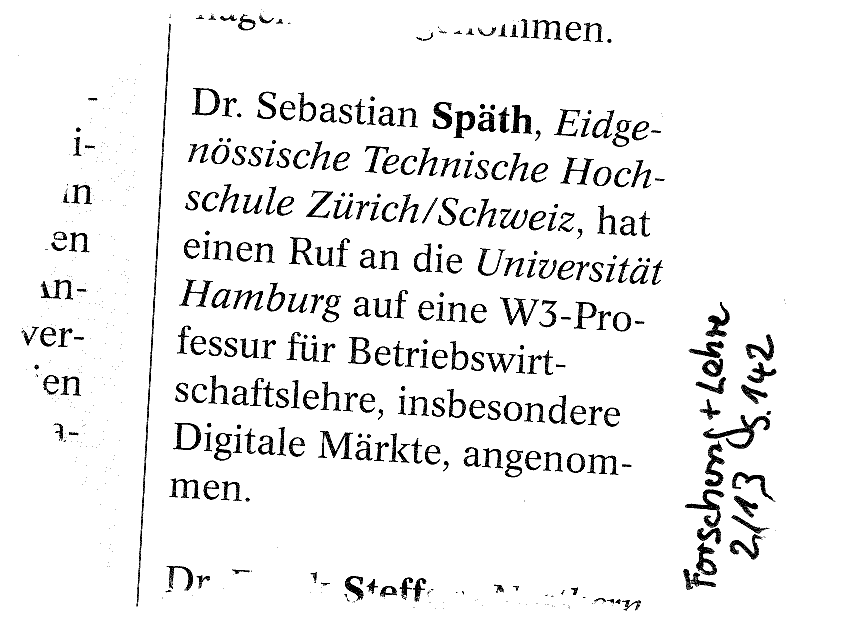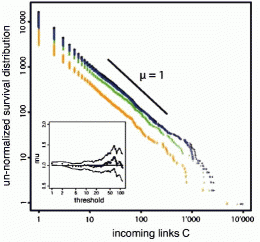I should have written about this quite some time ago, but never got around to actually do it. The last months have been exciting. I handed in my habilitation at ETH Zurich and it passed end December. Starting February 1st, I can now call myself a “Privatdozent ETH“, having been awarded the Venia Legendi (Teaching credentials) in Management Sciences.
Joel West, Joachim Henkel, Juliana Sutanto, and of course Georg von Krogh have steered me through the habilitation process, and I will always be grateful for the volunteer effort that they’ve put into this.
So far so good. But this also implies that my time at the ETH is coming to an end. I actually attempted to remain in Zurich and applied at both ETH and University of Zurich — to no avail.
I have been applying at a few Universities in Germany during 2012, and out of 5 applications was invited to present at four Universities (no, I will not publicly shame the one University that did not respond for seven months at all, rejecting me with a 2-liner).

©Forschung und Lehre 2013
Prompted by this announcement in Forschung und Lehre in February 2013, I am very, very happy to announce that I successfully negotiated with the University of Hamburg in December 2012, and that I am in the process of getting my chair at the University starting in July 2013. In Hamburg, a city of media publishers and technology startups, I will be the heading the Chair of Management, specifically Digital Markets, at the School of Business, Economics and Social Sciences. More specifically, I will be located in the Department of Socioeconomics, the Fachbereich Sozialökonomie.
This implies a lot of changes, all of them exciting, and most of it to the positive:
For the first time in my life I will have a working contract that is not time-limited at the outset. This means a lot to a man whose hair is getting gray and whose kids are growing up. It also means being my own boss for the first time in my life and being the boss of a few others depending on me. This is going to be a tremendous challenge and one that I look forward to.
Research-wise, I will be even freer to pursue the topics that I am curious about. While my current chair of strategic management and innovation is broad enough to let me follow my research interests, digital markets and digital technologies have always been the core of my curiosity. Georg von Krogh has always given me all the academic freedom that I need. Let us not talk about resource endowment at this point though…
Teaching-wise, this will be quite a change. I will have to do more teaching that I ever had done, and I will have to do it in a system that I have not been part of for 13 years. I have already been struggling with lecture directories that require abstracts to be in (exclusively) German for courses that are going to be taught in English as part of an International Master’s programme. Oh well, may you live in interesting times…
Family-wise, it is a relief to be living closer to our families, and to actually have family members living in the same city.
I look forward to collaborate with new colleagues, such as Jetta Frost, Mark Heitmann or Dirk Gilbert, and also to be able to renew collaborations with other colleagues such as Jan Lungberg, Bertil Rolandsson, Linus Dahlander, Christina Raasch, or Oliver Alexy.


